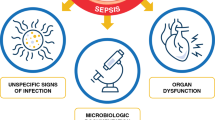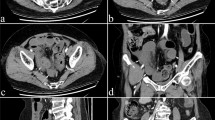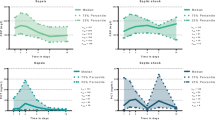Abstract
Background
Using biological markers to predict serious complications and global postoperative recovery, to ensure safe and timely patient discharge after elective colorectal surgery represents a major challenge. The aim of this study was to demonstrate that C-reactive protein levels < 172 mg/l on postoperative day 3 were associated with postoperative recovery within 5 days.
Methods
This is a prospective study of a consecutive bicentric cohort. Successive patients scheduled for bowel resection with anastomosis, without stoma, were included. The main composite endpoint for overall postoperative recovery included absence of fever, absence of pain > 2 on the visual analog scale, intestinal gas transit, and patient autonomy for mobility and body care.
Results
One hundred sixty-height patients, with a mean age of 65 years old, were analyzed. Ninety patients (53%) underwent right colectomy and 131 (77%) were operated on by laparoscopy. Severe postoperative complications were observed in 11 patients (6%). One hundred twenty patients (71%) recovered within 5 days. C-reactive protein levels < 172 mg/L on postoperative day 3 had a negative predictive value of 80% to predict recovery within 5 days. Ninety-five percent of patients with C-reactive protein < 172 mg/L at postoperative day 3 had no severe postoperative complications.
Conclusion
Levels of C-reactive protein < 172 mg/L at postoperative day 3 corresponded with an early recovery in 80% of cases, thus allowing safe and early discharge without risk of serious complications.

Similar content being viewed by others
References
Facy O, Paquette B, Orry D, Binquet C, Masson D, Bouvier A et al (2016) Diagnostic accuracy of inflammatory markers as early predictors of infection after elective colorectal surgery: results from the IMACORS study. Ann Surg 263(5):961–966
Singh PP, Zeng ISL, Srinivasa S, Lemanu DP, Connolly AB, Hill AG (2014) Systematic review and meta-analysis of use of serum C-reactive protein levels to predict anastomotic leak after colorectal surgery: use of C-reactive protein levels to predict anastomotic leak after colorectal surgery. British J Surg 101(4):339–346
Cousin F, Ortega-Deballon P, Bourredjem A, Doussot A, Giaccaglia V, Fournel I (2016) Diagnostic accuracy of Procalcitonin and C-reactive protein for the early diagnosis of intra-abdominal infection after elective colorectal surgery: a meta-analysis. Ann Surg 264(2):252–256
Benedix F, Kube R, Meyer F, Schmidt U, Gastinger I, Lippert H (2010) Comparison of 17,641 patients with right- and left-sided colon cancer: differences in epidemiology, perioperative course, histology, and survival. Dis Colon Rectum 53(1):57–64
Rana AR, Cannon JA, Mostafa G, Carbonell AM, Kercher KW, Norton HJ et al (2007) Outcomes of right- compared with left-side colectomy. Surg Innov 14(2):91–95
Warschkow R, Beutner U, Steffen T, Müller SA, Schmied BM, Güller U et al (2012) Safe and early discharge after colorectal surgery due to C-reactive protein: a diagnostic meta-analysis of 1832 patients. Ann Surg 256(2):245–250
Tan WJ, Ng WQ, Sultana R, de Souza NN, Chew MH, Foo FJ et al (2018) Systematic review and meta-analysis of the use of serum procalcitonin levels to predict intra-abdominal infections after colorectal surgery. Int J Color Dis 33(2):171–180
Facy O, Paquette B, Orry D, Santucci N, Rat P, Rat P et al (2017) Inflammatory markers as early predictors of infection after colorectal surgery: the same cut-off values in laparoscopy and laparotomy? Int J Color Dis 32(6):857–863
Vetel JM, Leroux R, Ducoudray JM (1998) AGGIR. Practical use. Geriatric Autonomy Group Resources Needs. Soins Gerontol 13:23–27
Alves A. Postoperative mortality and morbidity in French patients undergoing colorectal surgery: results of a prospective multicenter study. Arch Surg. 1 mars 2005;140(3):278
Krarup P-M, Jorgensen LN, Harling H (2014) Management of anastomotic leakage in a nationwide cohort of colonic cancer patients. J Am Coll Surg 218(5):940–949
Kingham TP, Pachter HL (2009) Colonic anastomotic leak: risk factors, diagnosis, and treatment. J Am Coll Surg 208(2):269–278
Muñoz JL, Alvarez MO, Cuquerella V, Miranda E, Picó C, Flores R et al (2018) Procalcitonin and C-reactive protein as early markers of anastomotic leak after laparoscopic colorectal surgery within an enhanced recovery after surgery (ERAS) program. Surg Endosc 32(9):4003–4010
Giaccaglia V, Salvi PF, Cunsolo GV, Sparagna A, Antonelli MS, Nigri G et al (2014) Procalcitonin, as an early biomarker of colorectal anastomotic leak, facilitates enhanced recovery after surgery. J Crit Care 29(4):528–532
Fierens J, Wolthuis AM, Penninckx F, D’Hoore A (2012) Enhanced recovery after surgery (ERAS) protocol: prospective study of outcome in colorectal surgery. Acta Chir Belg 112(5):355–358
Gignoux B, Pasquer A, Vulliez A, Lanz T (2015) Outpatient colectomy within an enhanced recovery program. J Visceral Surg 152(1):11–15
Chasserant P, Gosgnach M (2016) Improvement of peri-operative patient management to enable outpatient colectomy. J Visceral Surg 153(5):333–337
Murray ACA, Chiuzan C, Kiran RP (2016) Risk of anastomotic leak after laparoscopic versus open colectomy. Surg Endosc 30(12):5275–5282
Levack M. Laparoscopy decreases anastomotic leak rate in sigmoid colectomy for diverticulitis. Arch Surg. 1 févr 2011;146(2):207
Wilson MZ, Hollenbeak CS, Stewart DB (2014) Laparoscopic colectomy is associated with a lower incidence of postoperative complications than open colectomy: a propensity score-matched cohort analysis. Color Dis 16(5):382–389
Holl S, Fournel I, Orry D, Facy O, Cheynel N, Rat P et al (2017) Should CT scan be performed when CRP is elevated after colorectal surgery? Results from the inflammatory markers after colorectal surgery study. J Visc Surg 154(1):5–9
Giaccaglia V, Salvi PF, Antonelli MS, Nigri G, Pirozzi F, Casagranda B et al (2016) Procalcitonin reveals early dehiscence in colorectal surgery: the PREDICS study. Ann Surg 263(5):967–972
Lagoutte N, Facy O, Ravoire A, Chalumeau C, Jonval L, Rat P et al (2012) C-reactive protein and procalcitonin for the early detection of anastomotic leakage after elective colorectal surgery: pilot study in 100 patients. J Visc Surg 149(5):e345–e349
Garcia-Granero A, Frasson M, Flor-Lorente B, Blanco F, Puga R, Carratalá A et al (2013) Procalcitonin and C-reactive protein as early predictors of anastomotic leak in colorectal surgery: a prospective observational study. Dis Colon Rectum 56(4):475–483
Juvany M, Guirao X, Oliva JC, Badía Pérez JM (2017) Role of combined post-operative venous lactate and 48 hours C-reactive protein values on the etiology and predictive capacity of organ-space surgical site infection after elective colorectal operation. Surg Infect 18(3):311–318
Author information
Authors and Affiliations
Contributions
Emeric Abet contributed to study design, collected and analyzed the data, and revised the manuscript. Farouk Drissi collected and analyzed data and wrote the manuscript. Clement Couëtte collected and analyzed data and co-wrote the manuscript. Marc-Henri Jean and Juliette Podevin recruited patients. Fabrice Denimal recruited patients and analyzed data. Emilie Duchalais recruited patients, contributed to data collection and analysis. Guillaume Meurette contributed to study design and data analysis. He recruited patients and revised the manuscript.
Corresponding author
Ethics declarations
Disclosures
None.
Additional information
Publisher’s note
Springer Nature remains neutral with regard to jurisdictional claims in published maps and institutional affiliations.
Rights and permissions
About this article
Cite this article
Abet, E., Drissi, F., Couëtte, C. et al. Predictive value of inflammatory markers for postoperative recovery following colorectal surgery. Int J Colorectal Dis 35, 1125–1131 (2020). https://doi.org/10.1007/s00384-020-03594-y
Accepted:
Published:
Issue Date:
DOI: https://doi.org/10.1007/s00384-020-03594-y




